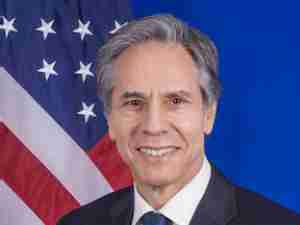A meeting of ministers in July 2008 seeking a breakthrough in the World Trade Organisation's Doha round collapsed over the safeguard issue, and negotiators have been seeking common ground among food importers and exporters ever since.
The G33, a caucus of developing countries at the WTO, filed two technical documents on Friday on the special safeguard mechanism (SSM), a proposal to protect farmers in poor countries from a flood of destabilising food imports by allowing their governments to raise tariffs temporarily from agreed levels.
The papers, following a "political submission" at the end of January, and to be followed by two or three more technical documents, appeared in the middle of two weeks of intensive technical negotiations on agriculture within the Doha talks.
"The main idea of the submission is to provide not only a political argument but also a technical one," said Indonesia's ambassador to the WTO, Erwidodo, who like many Indonesians goes by a single name. Indonesia chairs the G33, the group which is spearheading proposals for the safeguard.
Simple and Operative
One of the main concerns of developing countries which want the mechanism is to ensure that the safeguard will be simple and easy to invoke.
They say that a cumbersome process to establish the conditions under which it could be used would make it meaningless as the damage would already be done to subsistence farmers vulnerable to a surge in imports.
Some of the proposals by exporters concerned that the safeguard would be too far-reaching apply too many conditions, Erwidodo told Reuters.
"That makes the SSM difficult to operate," he said.
Many of the issues surrounding the safeguard are highly complicated, but the difference between countries like Indonesia and India with millions of subsistence farmers on the one hand, and exporters both rich, like the United States, and poor, like Costa Rica or Uruguay, come down to one thing.
The G33 countries say they must be allowed to respond to a sudden flood of imports by raising tariffs sharply but temporarily, above any levels set in an eventual Doha agreement, so that their farmers are not driven out of business, destroying both their livelihoods and the country's food security.
Exporters agree a safeguard is reasonable, but fear it could be used to choke off normal growth in trade, and that a competitive increase in exports will be interpreted as a flood in imports.
One question still to be settled is whether the safeguard would allow tariffs to rise above pre-Doha levels, in other words above levels set in 1994 in the previous trade negotiation, the Uruguay Round.
Food importers say that may sometimes be necessary, while exporters say that by putting the clock back it would make a mockery of a negotiation to open world trade.
Another technical question concerns the "baseline" -- the starting point for calculating whether an increase in imports is a flood.
Exporters worry that the use of the safeguard one year could result in zero imports, so that any imports the following year would by definition exceed any percentage threshold, triggering the safeguard yet again.
Erwidodo said this could be addressed by using a moving average of three years' imports for the baseline, which would generally result in a rising figure each year.








